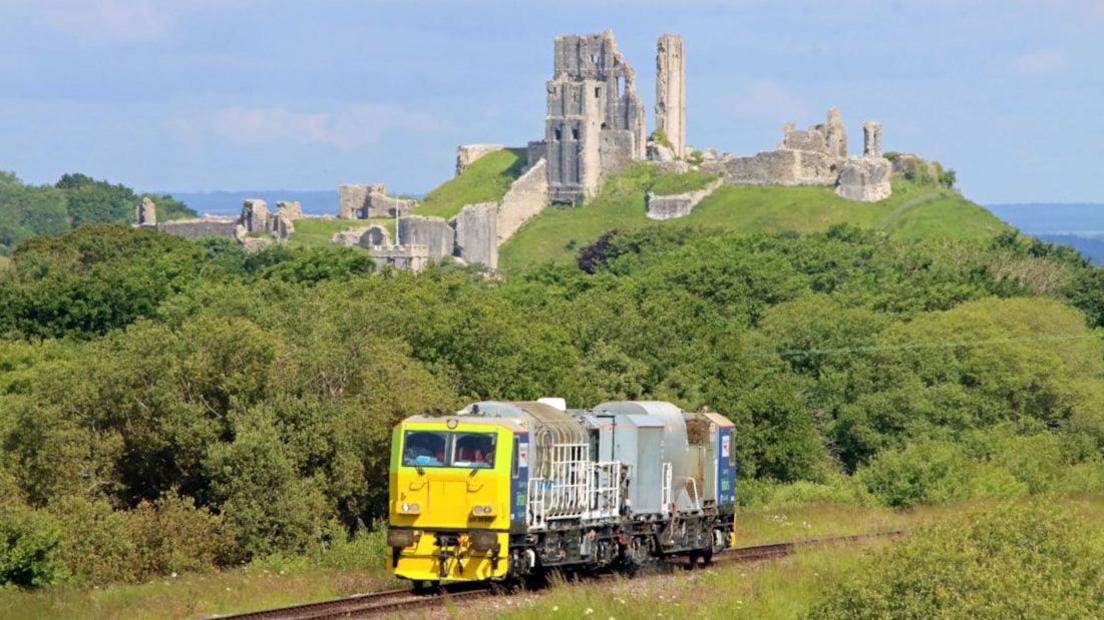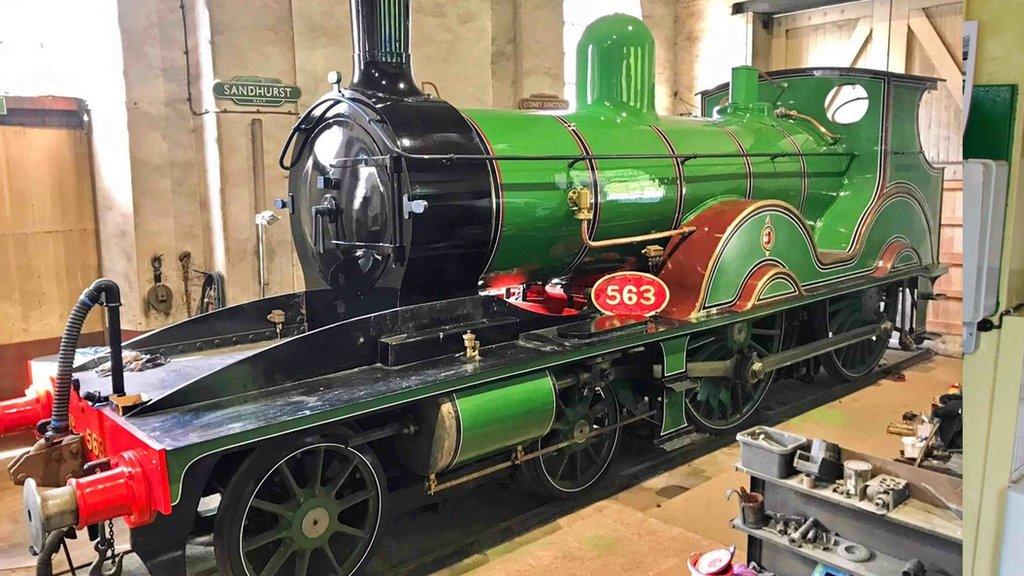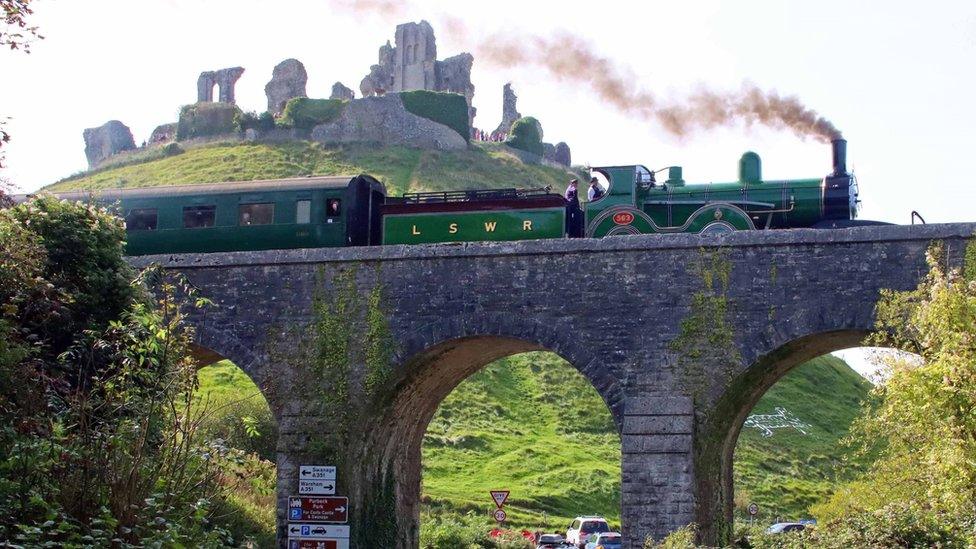Weed killer train helps heritage line

The Multi Purpose Vehicle treated weeds on a five-and-a-half-mile stretch of the Swanage Railway line
- Published
Work to clear weeds from a heritage railway line in Dorset has been carried out with the help of specialist equipment.
A Multi Purpose Vehicle (MPV) was provided to Swanage Railway to treat and kill weeds growing along five and a half miles (9km) of line.
The train is usually deployed by Network Rail on the south west mainline.
Swanage Railway director Gavin Johns said it was an "effective and efficient" way of clearing weeds to keep trains operating.
"Maintaining our track in a safe and useable condition is essential for our nine-mile heritage line and managing weeds that grow along the track is a key part of that activity as stone track ballast, free of weeds, enables water to quickly drain away," he added.
The vehicle was used as part of a partnership between Network Rail, Balfour Beatty and the heritage line.
'Safely and reliably'
MPVs are commonly used in autumn and winter to blast leaves off the line with high-pressure water jets, or de-ice the conductor rail if the temperature falls below five degrees.
Mark Goodall, Network Rail Wessex route director, said: “Heritage railways are hugely popular tourist attractions and play an important role in celebrating and retaining the history of our amazing railway.
"As a rail industry we provide a range of support to help keep heritage railways running safely and reliably and many of our staff volunteer their time and expertise.”
The Swanage branch line was closed and demolished by British Rail in 1972 but volunteers spent 30 years rebuilding it as a tourist attraction.
It operates full-size steam and diesel passenger trains from Norden to Corfe Castle and down to the seaside town of Swanage.
Get in touch
Do you have a story BBC Dorset should cover?
You can follow BBC Dorset on Facebook, external, X (Twitter), external, or Instagram, external.
Related topics
Related internet links
See also
- Published21 June 2023

- Published8 November 2023

- Published1 August 2014